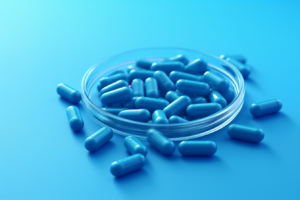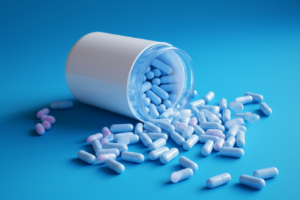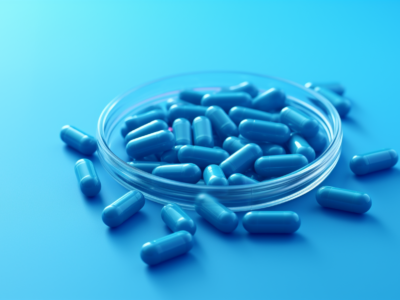Introduction to Creatine
Creatine is a naturally occurring amino acid that is found in the body and is used to produce energy. It is also found in some foods, such as red meat and fish, and is available as a dietary supplement. Creatine supplementation has been shown to have beneficial effects on athletic performance, muscle mass, and cognitive benefits in athletes. It has also been linked to potential health benefits in healthy individuals.
Creatine supplementation can be taken orally or through the use of sports supplements. The International Society of Sports Nutrition recommends taking 3-5 g of creatine per day for up to 8 weeks of creatine monohydrate supplementation. Creatine loading, which involves taking 20 g of creatine per day for 5-7 days, may also be beneficial. However, it is important to note that taking high doses of creatine can cause adverse effects, such as muscle cramps and weight gain. Therefore, it is important to consult with a doctor before taking creatine supplements. Additionally, people with kidney disease should not take creatine as it may cause further damage to the kidneys.
Benefits of Creatine
Creatine may be one of the most beneficial sports supplements available. It is naturally produced in the body and is also found in certain foods. Creatine use has been linked to increased muscle mass, improved strength, and enhanced performance in athletes. Studies suggest that creatine supplementation during resistance training can increase muscle mass and strength. Additionally, creatine ingestion may help to increase the amount of creatine in your body, which can help to improve your performance.

Creatine is generally considered safe for healthy individuals, and studies have shown that creatine supplementation may not cause any detrimental side effects. However, it is important to note that taking oral creatine can cause side effects in some people, so it is important to monitor your creatine levels and use creatine in moderation.
Research on creatine has also suggested that taking 3 g of creatine per day may be beneficial for athletes, and that taking 5 g of creatine every day may help to increase your creatine stores. Additionally, creatine has been used in combination with other beneficial sports supplements, and it has been suggested that creatine can boost performance and increase muscle mass.
Effect of Creatine
The effect of creatine supplementation has been studied extensively in recent years. Creatine is a naturally occurring compound found in the body, and it is also found in certain foods. Creatine phosphate is used to produce energy in the body, and dietary creatine can be taken as a supplement to increase the amount of creatine in the body. Studies have shown that the use of creatine may help to improve athletic performance, and it has been linked to positive health benefits in athletes.
Creatine is generally considered safe, but there are some possible side effects of creatine supplementation. Creatine may cause muscle cramps, nausea, and diarrhea. It is important to note that large amounts of creatine can cause kidney damage, so it is important to monitor your creatine intake. Additionally, creatine can cause dehydration, so it is important to stay hydrated when taking creatine supplements. In general, creatine is safe and effective when taken in moderation, and it can help to improve athletic performance and provide other potential benefits.
Dosage of Creatine
Creatine is a naturally occurring compound found in the body and is often supplemented to enhance athletic performance. The efficacy of creatine supplementation has been studied extensively, and it is generally considered safe for use. Studies have shown that creatine can help improve muscle strength and power, and much creatine is needed to achieve these effects. Safety and efficacy of creatine supplementation has been studied in athletes for up to 21 months, and no adverse effects on kidney function have been reported. Creatine does not cause any serious side effects, and dietary creatine supplementation has been linked to positive health benefits in athletes.
Adding creatine to your diet can be done by ingesting creatine supplements or by eating foods that are high in creatine. Creatine kinase is an enzyme that is involved in the synthesis of creatine, and it is believed that creatine enhances the activity of this enzyme. Studies have shown that use of creatine supplements can improve muscle strength and power, and that ingesting up to 5 grams of creatine in combination with resistance training can have positive effects. Creatine is generally considered safe, and it is not an anabolic steroid. Creatine users have reported positive health benefits, and it is believed that creatine can improve athletic performance.
Potential Side Effects of Creatine
Creatine is a naturally occurring compound found in the body, and it’s safe to supplement with it. Studies have shown that creatine supplementation enhances performance in athletes, and it has been linked to positive health benefits. However, there are potential side effects of creatine that you should be aware of.

Adding creatine to your diet can cause some unwanted side effects. A study of creatine supplementation for 21 months found that it can cause dehydration, muscle cramps, and gastrointestinal distress.
Creatine has also been linked to kidney damage, although this is rare.
Creatine is not an anabolic steroid, but it can increase creatine synthesis, which can lead to increased testosterone levels. This can cause some unwanted side effects, such as increased aggression and acne.Overall, creatine is generally safe to take, but it’s important to be aware of the potential side effects. If you’re considering taking creatine supplements, it’s best to consult with your doctor first.
Conclusion
In conclusion, creatine is a safe and effective supplement for athletes. It has been linked to positive health benefits, such as increased muscle mass and strength. Adding creatine to an athlete’s diet can be beneficial, as long as it is done in moderation. Creatine is not an anabolic steroid, and it is not known to cause any serious side effects. However, it is important to note that creatine should not be supplemented for more than 21 months. Studies have shown that supplementing with creatine for longer than 21 months can lead to adverse effects. Overall, creatine is a safe and effective supplement for athletes, and it can provide positive health benefits when used in moderation.

FAQ’s:
Q1. Is creatine safe?
A1. Yes, creatine is generally considered safe when taken in recommended doses.
Q2. What are the side effects of creatine?
A2. Common side effects of creatine include weight gain, nausea, diarrhea, and muscle cramping.
Q3. Does creatine cause any health problems?
A3. No, creatine has not been linked to any serious health problems when taken in recommended doses.
Q4. Is it safe to add creatine to my diet?
A4. Yes, adding creatine to your diet is generally considered safe when taken in recommended doses.
Q5. Is creatine an anabolic steroid?
A5. No, creatine is not an anabolic steroid.
Q6. Are there any positive health benefits to taking creatine supplements for 21 months?
A6. Yes, studies have shown that taking creatine supplements for 21 months can provide positive health benefits in athletes.
Q7. Has creatine been linked to any negative health effects when supplemented with for long periods of time?
A7. No, creatine has not been linked to any negative health effects when supplemented with for long periods of time.



 Creatine And Aging
Creatine And Aging
